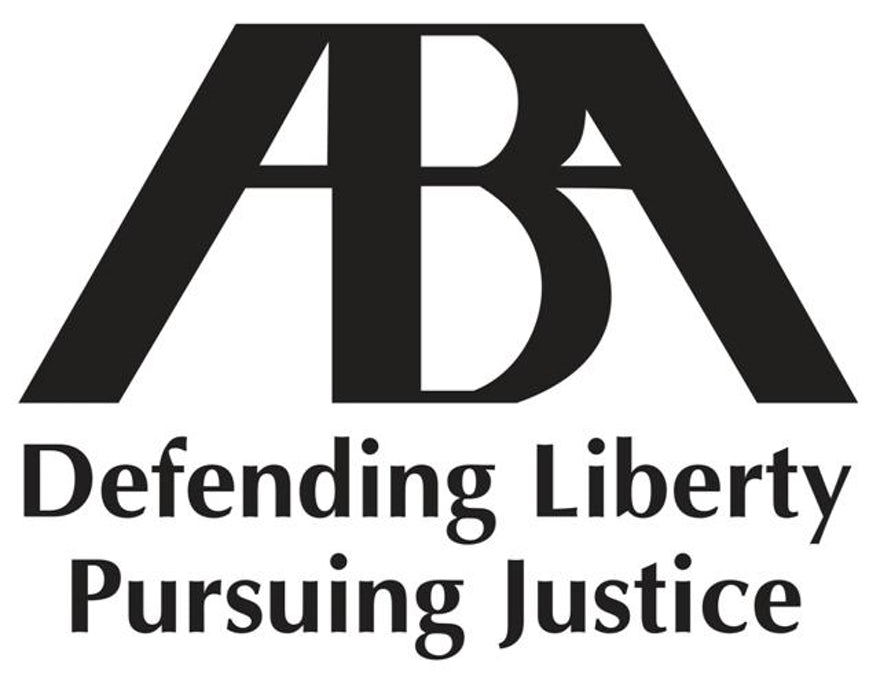Nevada Bankruptcy Exemptions
Understanding Your Nevada Bankruptcy Exemptions: A Complete Guide
Bankruptcy can offer a fresh start, but the fear of losing your home, car, or other essential property can be overwhelming. Nevada exemption laws are designed to protect certain assets during the bankruptcy process.
Why Exemptions Matter
- Chapter 7 Bankruptcy: In a Chapter 7, exemptions determine which assets you can keep, as non-exempt property may be sold to repay creditors.
- Chapter 13 Bankruptcy: Exemptions can also affect the amount you need to repay in a Chapter 13 reorganization plan.
Nevada Bankruptcy Attorneys: Maximizing Your Exemptions
Navigating Nevada’s exemption laws is complex. As experienced bankruptcy attorneys, we’ll carefully analyze your situation and help you claim all the exemptions you’re entitled to.
Common Nevada Exemptions
Nevada law provides exemptions for:
- Homestead (primary residence)
- Motor vehicles
- Personal property (clothing, furniture, etc.)
- Tools of your trade
- Retirement accounts
- And more…
Don’t Risk Losing What You’ve Built – Get Legal Guidance
Schedule a consultation with the Nevada Bankruptcy Attorneys today. We’ll help you understand your rights and protect your assets during the bankruptcy process.
Key Takeaways
- Nevada requires residents to use state-specific bankruptcy exemptions and mandates residency of at least 730 days before filing; these exemptions include protections for homes, vehicles, personal property, and wages.
- Homestead exemption in Nevada protects up to $605,000 in home equity and can apply to mobile homes; motor vehicle exemption protects up to $15,000 of equity, with no limit on disability-modified vehicles.
- Wildcard exemption in Nevada allows debtors to exempt an additional $10,000 worth of any personal property and public benefits like social security and child support payments are safeguarded from creditors.
Understanding Nevada’s Bankruptcy Exemptions

Bankruptcy exemptions play a critical role in the bankruptcy process in Nevada, ensuring that individuals can retain a certain amount of property to set them on the path to financial recovery. Unlike other states, Nevada requires debtors to use state-defined bankruptcy exemptions, rather than federal bankruptcy exemptions, illustrating the uniqueness of its bankruptcy laws.
One’s eligibility for these exemptions demands residency for a minimum of 730 days prior to filing. If you’ve resided for less time, then the exemptions of your previous state of residency apply. These exemptions cover a range of assets, from homes and cars to additional assets like income tax refunds and stimulus payments thanks to federal nonbankruptcy exemptions.
The Role of Exemptions in Chapter 7 Bankruptcy
Chapter 7 bankruptcy in Nevada, often referred to as ‘liquidation chapter,’ is a procedure utilized by individuals or entities with no hope to financially repair themselves. The primary purpose of claiming exemptions in a Chapter 7 bankruptcy filing is to safeguard essential assets from liquidation. This means that any nonexempt property may be sold by the bankruptcy trustee to pay creditors.
Hence, it is imperative to comprehend and accurately claim your exemptions in a Chapter 7 bankruptcy to safeguard your assets.
How Exemptions Function in Chapter 13 Bankruptcy
Unlike Chapter 7 bankruptcy, Chapter 13 bankruptcy is designed to restructure or reorganize debts, allowing debtors to pay them back over three to five years under a court-approved plan. In this scenario, debtors maintain ownership of all their assets, repaying the value of nonexempt property through their repayment plan. Unsecured creditors typically receive payment from the disposable income left over after paying off secured creditors, which are paid over the plan’s duration.
Upon the successful completion of a Chapter 13 bankruptcy plan, the court discharges any remaining unsecured debt. This accentuates the significance of comprehending your exemptions in a Chapter 13 bankruptcy, given their direct impact on the repayment amount.
Protecting Your Home: The Nevada Homestead Exemption

Your home, often your most valuable asset, can be protected under the Nevada bankruptcy homestead exemption. This exemption allows for the protection of up to $605,000 in home equity. To safeguard this precious asset, homeowners must:
- File a Homestead Declaration with the County Recorder’s office.
- Provide detailed property information.
- Record the declaration before filing for bankruptcy to successfully claim the homestead exemption in Nevada.
A thorough understanding of this process and awareness of the protections in place can offer solace in an otherwise taxing period.
Limits and Benefits of the Homestead Exemption
The homestead exemption in Nevada is a powerful tool for homeowners. It covers up to $605,000 in home equity for a single-family residence. This means that for a dwelling not exceeding one acre, the homestead exemption caps equity protection at $605,000. The limit established by Nevada Revised Statutes (NRS) is subject to legislative amendments and adjusted periodically to reflect changes in economic conditions.
The benefits of this exemption are numerous. Not only does it prevent the forced sale of the home, but it also provides financial security and peace of mind during challenging economic times.
Special Considerations for Mobile Homes
In Nevada, the homestead exemption can be applied to mobile homes, providing financial protection to homeowners filing for bankruptcy. To claim the homestead exemption for a mobile home, homeowners must file a Declaration of Homestead specific to mobile homes in the county where the property is located. The exemption also covers the land on which the mobile home is situated if owned by the homeowner up to the cap of $605,000.
Even if the mobile home is on leased land, the homestead exemption can still protect the mobile home itself, but it might not extend to the land. This protection, unique to Nevada, illustrates the state’s commitment to preserving homeownership in all its forms.
Keeping Your Wheels: Motor Vehicle Exemption in Nevada

Much like your home, your vehicle is an essential asset. Recognizing this, Nevada allows individuals to protect up to $15,000 of equity in their motor vehicle under the state’s bankruptcy exemption laws. There is even more good news for individuals with disabilities, as there is no equity limit on motor vehicles that are modified to accommodate disabilities; these vehicles are fully protected under Nevada’s motor vehicle exemption. However, it’s important to note that this exemption does not extend to recreational vehicles, boats, or additional automobiles beyond the first.
Equity Protection for Your Vehicle
When it comes to your vehicle, understanding equity is key. In Nevada, debtors can exempt up to $15,000 of equity in a motor vehicle. This means that if your car is worth $20,000 and you owe $10,000 on the loan, you can exempt the full $10,000 of equity in the vehicle.
This safeguard guarantees the retention of your vehicle, a vital asset for numerous individuals and families, amidst bankruptcy.
Exemption Provisions for Disabled-Accessible Vehicles
Nevada’s motor vehicle exemption goes even further to protect those with disabilities. Vehicles modified for individuals with disabilities are completely exempt from being claimed by creditors in a bankruptcy. This applies comprehensively to the modifications in the vehicle that support the disabled individual’s needs. There is no monetary cap on the exemption for vehicles that have been adapted for disability accessibility in Nevada.
This provision reflects Nevada’s dedication to preserving the means for all residents to uphold their independence and mobility, even amidst bankruptcy.
Safeguarding Personal Property and Wages

Beyond your home and vehicle, Nevada bankruptcy exemptions protect a range of personal property and wages. This includes:
- Household appliances
- Furniture
- Home goods
- Up to $10,000 in stocks, bonds, and other deposited funds
- Tenant’s security deposit (unless it’s needed by the landlord to enforce lease terms)
In terms of wages, Nevada law protects up to 82% of your weekly disposable earnings if the wage is $770 or less, and 75% if it is more, subject to a minimum of 50 times the federal minimum wage. These safeguards guarantee sufficient income for individuals to cover basic living expenses, despite the debts they owe.
Household Goods and Personal Effects
Nevada law, in compliance with federal law, extends protections to a variety of household goods and personal effects. This includes items such as:
- yard equipment
- appliances
- furniture
- electronics
- clothing
These protections help ensure that you can maintain a basic standard of living, even in the aftermath of bankruptcy.
Income Protections
Income protections are another critical aspect of Nevada’s bankruptcy exemptions. A portion of an individual’s disposable earnings is protected from garnishment by law. The intent behind these protections is to ensure that individuals have sufficient income to meet basic living expenses despite owing debts. This includes certain benefits like:
- pension payments
- health insurance benefits
- unemployment compensation
- benefits received under social security
- veterans’ benefits
In fact, the maximum amount of disposable earnings that can be exempted from garnishment in Nevada is either 75% or 30 times the federal minimum hourly wage, whichever is greater, and this may also be affected by factors such as the earned income tax credit.
And if a court concludes that your weekly income is barely enough to support your family, it can disallow garnishment entirely. These provisions illustrate Nevada’s commitment to protecting its residents during hard times.
Retirement and Insurance: Ensuring Future Security

Planning for the future is important, and Nevada’s bankruptcy exemptions reflect that. They protect tax-exempt retirement accounts, IRAs, and Roth IRAs from creditors during bankruptcy proceedings. This includes defined benefit plans, along with other tax-exempt retirement accounts. In fact, the protection limit for retirement accounts during Nevada bankruptcy proceedings can reach up to $1 million. Most pension and retirement benefits are exempt in Nevada, providing security for retirees going through bankruptcy.
These exemptions exhibit the all-encompassing aspect of asset protection in Nevada, giving assurance that individuals can envisage a secure future, even while confronting immediate financial hardship.
Exemption for Retirement Accounts
Nevada offers protection for various tax-exempt retirement accounts in bankruptcy, including:
- 401(k)s
- 403(b)s
- Profit-sharing plans
- Money purchase plans
- SEP and SIMPLE IRAs
- Defined benefit plans
This safeguard enables individuals to safeguard their retirement savings during difficult financial times. These accounts, including qualified retirement plans and certain trust accounts, enjoy exemption of up to $1 million during bankruptcy proceedings. Nevada’s exemption statutes, specifically NRS 21.090, offer robust protection for retirement accounts from the claims of most creditors, ensuring these assets are safe during bankruptcy without requiring a special asset protection trust.
These safeguards emphasize the necessity of future planning, even while grappling with current financial difficulties.
Life Insurance and Annuity Exemptions
Beyond retirement accounts, life insurance and annuity proceeds are also protected from bankruptcy claims in Nevada. This includes:
- Life insurance
- Health insurance
- Group life or health policy proceeds
- Annuity contract proceeds
Life insurance money in Nevada is categorized as completely exempt from bankruptcy claims.
These safeguards can serve as a pivotal safety net for families during challenging times, guaranteeing their financial stability.
Nevada Wildcard Exemption: A Versatile Option
The Nevada bankruptcy wildcard exemption is another unique feature of Nevada’s bankruptcy laws. It allows debtors to exempt up to $10,000 of any personal property of their choice. The Nevada wildcard exemption can be applied to a variety of personal property items, including:
- Furniture
- Electronics
- Jewelry
- Clothing
- Vehicles
This exemption can be used for items that are not specifically covered by other exemptions, except for real property.
For married couples filing jointly in Nevada, the wildcard exemption doubles, permitting them to protect an additional $20,000 worth of personal property. This adaptable option can serve as a beacon of hope for numerous individuals, offering flexibility in asset protection.
Utilizing the Wildcard Exemption
The Nevada wildcard exemption has a value limit of $10,000 that can be applied to protect personal property in a bankruptcy case. This exemption can be used to protect various types of personal property, within the value limit, offering flexibility to the debtor.
The flexibility of this exemption allows individuals to customize their asset protection according to their specific needs, offering a unique security layer during the bankruptcy process.
Strategy for Maximizing Asset Protection
Maximizing asset protection using the wildcard exemption involves a strategic selection of personal property. In Nevada, individuals can protect $10,000 worth of personal property of their choice, excluding real estate. To maximize asset protection using the wildcard exemption, debtors can select personal property up to the value of $10,000, which is most essential or valuable to them. Some examples of personal property that can be protected using the wildcard exemption include:
- Jewelry
- Electronics
- Furniture
- Artwork
- Collectibles
By carefully selecting personal property that is most important to them, debtors can ensure that their assets are protected to the maximum extent allowed by law.
Married couples filing for bankruptcy in Nevada can double their wildcard exemption to protect up to $20,000 in personal property. This strategic use of the wildcard exemption can ensure that you retain the most valuable or necessary items during bankruptcy.
Public Benefits and Support Payments: Shielded from Creditors
Social security, public assistance, and support payments are another important aspect of Nevada’s bankruptcy exemptions. A range of social security and public assistance benefits are fully protected from bankruptcy claims in Nevada, ensuring support for the blind, aged, and disabled. This includes retirement and survivor’s benefits, supplemental security income benefits, and disability insurance benefits.
Unemployment compensation is also exempt, allowing individuals who are between jobs to maintain this crucial financial support even during bankruptcy. Proceeds from private disability insurance policies are yet another form of support that is exempt from bankruptcy claims, providing an additional layer of financial security.
Social Security and Public Assistance
Social security benefits, including:
- supplemental security income
- disability
- retirement benefits
- survivor’s benefits
are completely exempt from bankruptcy in Nevada. Unemployment compensation and vocational rehabilitation benefits are also exempt from bankruptcy claims in Nevada.
Additionally, private disability insurance payments are exempt from bankruptcy claims. These protections ensure that individuals can continue to receive vital support during their bankruptcy proceedings.
Child and Spousal Support Exemptions
Child and spousal support payments are another important aspect of Nevada’s bankruptcy exemptions. These payments are exempt from bankruptcy in Nevada when there is a court order specifying the exempt amounts. This includes court-ordered child and spousal support payments, as well as any past due amounts.
Assistance specifically directed for children is secured and cannot be accessed by creditors during bankruptcy proceedings under Nevada law. These exemptions guarantee the continuous receipt of crucial support for families during the bankruptcy process.
Unique Nevada Exemptions: From Personal Injury to Public Employees
Nevada’s bankruptcy exemptions also cover some unique areas. One such area is personal injury and wrongful death awards. Public employee retirement benefits also have specific exemptions in Nevada bankruptcy laws.
These retirement benefits for public employees are fully protected in Nevada bankruptcy, underscoring the value Nevada places on safeguarding the financial security of its public servants.
Personal Injury and Wrongful Death Awards
Personal injury compensation up to $16,150 and wrongful death compensation necessary for support are exempt in Nevada bankruptcy. This ensures that individuals who have suffered a personal injury or lost a loved one due to wrongful death can keep their compensation, providing vital financial support.
Awards for loss of future earnings are also safeguarded during Nevada bankruptcies as required for the support of the debtor and their dependents. These exemptions provide additional security for individuals who have endured hardship.
Protections for Public Employee Retirement Benefits
Public employee retirement benefits are another unique area of protection under Nevada’s bankruptcy laws. These benefits are fully exempt and cannot be seized during a bankruptcy case in Nevada.
This safeguard signifies Nevada’s dedication towards its public servants, ensuring their financial security during bankruptcy proceedings.
Navigating the Bankruptcy Process in Nevada
While understanding Nevada’s bankruptcy exemptions is critical, it’s equally important to understand how to navigate the bankruptcy process itself. This involves grasping state laws, preparing necessary documentation, and seeking legal counsel from a bankruptcy attorney.
To stay updated on changes in Nevada bankruptcy laws, you can consult the Nevada Legislature’s Law Library webpage or consult with a local bankruptcy lawyer.
Preparing to File: Required Documentation and Steps
Preparing to file for bankruptcy in Nevada involves a series of steps, starting with completing a pre-bankruptcy credit counseling course approved by the U.S. Trustee Program. The course must have been completed within the past 180 days when filing for bankruptcy. The initial documents for filing include:
- Voluntary Petition
- Social Security Number statement
- Bankruptcy Petition Preparer’s forms (if applicable)
- Creditor Matrix File
- Filing fee or application to waive or pay in installments.
Within 14 days of filing, additional documents such as:
- Schedules of assets
- Liabilities
- Income
- Expenses
- Executory contracts
- Unexpired leases
- Statement of financial affairs
need to be submitted. Individuals representing themselves during the bankruptcy process must download the correct forms from the U.S. You should submit your paperwork to the Bankruptcy Court for the District of Nevada. Make sure to carefully follow the filing instructions provided. If an individual has an attorney, the attorney will usually handle the filing on the individual’s behalf.
Seeking Legal Advice: The Role of a Bankruptcy Attorney
Navigating the bankruptcy process can be complex, and that’s where a bankruptcy attorney comes in. Hiring a local bankruptcy lawyer can help protect your assets during bankruptcy. The majority hire a local attorney for document preparation and defending their interests during personal bankruptcy filing.
A bankruptcy attorney ensures that debtors submit essential post-filing documents, such as the Certification About a Financial Management Course, an important step after the 341 Meeting of Creditors in Nevada, as required by the bankruptcy code.
Summary
Understanding Nevada’s bankruptcy exemptions is crucial for anyone contemplating or going through bankruptcy in the state. These exemptions are designed to protect essential assets and maintain a basic standard of living, offering a lifeline to those in financial distress. From protecting your home and vehicle to safeguarding personal property, wages, retirement accounts, and insurance proceeds, these exemptions provide comprehensive protection. Also, with unique exemptions like the wildcard exemption and protections for personal injury and wrongful death awards, public employee retirement benefits, and social security and public assistance, Nevada bankruptcy laws ensure a broad range of protections. Knowing these laws and navigating the bankruptcy process with the help of a skilled attorney can make a significant difference, offering the best possible outcome in a challenging situation.
Frequently Asked Questions
What is the income limit for Chapter 7 in Nevada?
In Nevada, the income limit for Chapter 7 bankruptcy is between $7,475 and $12,475 over the next 60 months. It’s important to consider this threshold before filing for Chapter 7.
What property can I protect with Nevada’s bankruptcy exemptions?
In Nevada, bankruptcy exemptions can protect various assets such as homes, vehicles, personal property, wages, retirement accounts, and more. It is important to understand these exemptions when considering bankruptcy.
What is the wildcard exemption in Nevada?
The wildcard exemption in Nevada allows debtors to exempt up to $10,000 of any personal property of their choice, excluding real estate. This exemption provides additional protection for personal assets.
How are wages protected during bankruptcy in Nevada?
In Nevada, wages are protected during bankruptcy, with the law safeguarding up to 82% of weekly disposable earnings if the wage is $770 or less, and 75% if it is more, subject to a minimum of 50 times the federal minimum wage.
How does the homestead exemption work in Nevada?
In Nevada, the homestead exemption protects up to $605,000 in home equity. To claim this exemption, homeowners need to file a Homestead Declaration with the County Recorder’s office before filing for bankruptcy.







